Technology
PayPal Leverages AI to Enhance Security Amid Evolving Cyber Threats
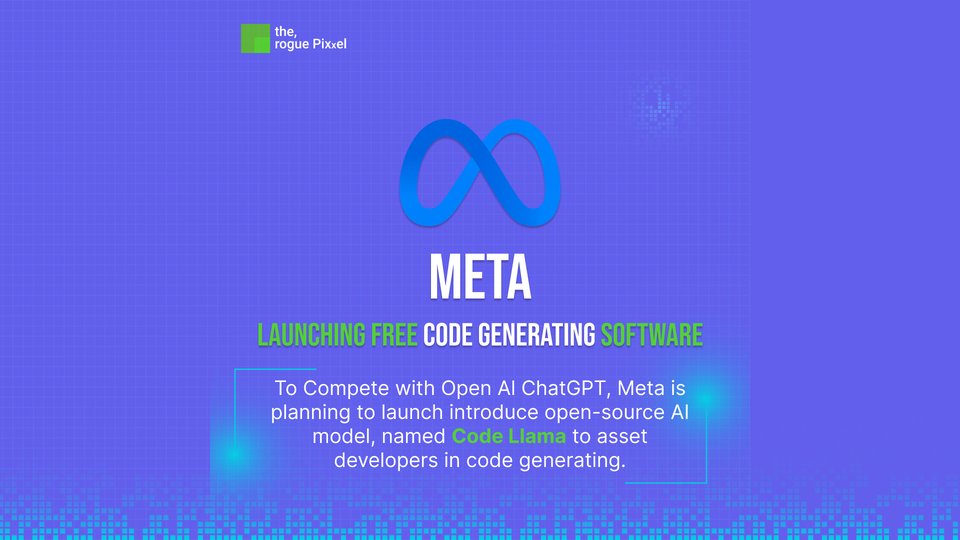
Tech News Highlights (13 Aug-19 Aug)
WhatsApp is Testing AI-Generated Stickers
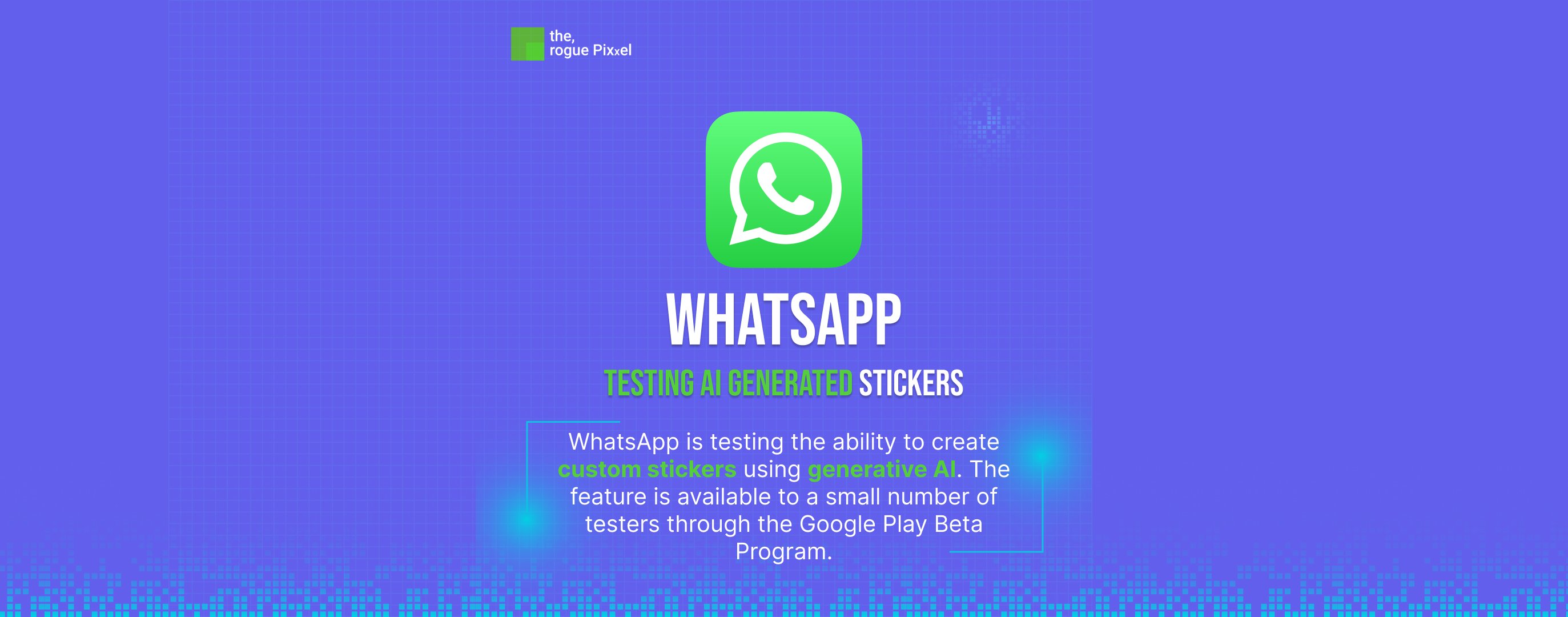
WhatsApp is experimenting with a feature that allows users to create custom stickers using generative AI. This information comes from WABetaInfo, noting that the feature is currently accessible to a limited number of testers in the Google Play Beta Program, with Meta planning a broader rollout soon.
When accessing this feature, users will notice a "Create" button within the sticker tab of the keyboard. By typing a description of the desired sticker, the AI will generate a range of stickers for the user to select and share in chats. These AI-generated stickers are distinct, and recipients will be notified when they receive one. Users also have the option to report any stickers they find offensive or inappropriate to Meta.
A Meta representative stated, “Our generative AI-powered experiences are under development in varying phases... We have nothing further to share at this time.”
The integration of generative AI into mainstream apps has been a growing trend this year. Introducing AI-generated stickers in WhatsApp could make chats feel more unique, providing users with personalized options beyond commonly used stickers, GIFs, and memes. Similar features are anticipated for Instagram and Messenger as well.
WhatsApp Allows Users to Send HD Images
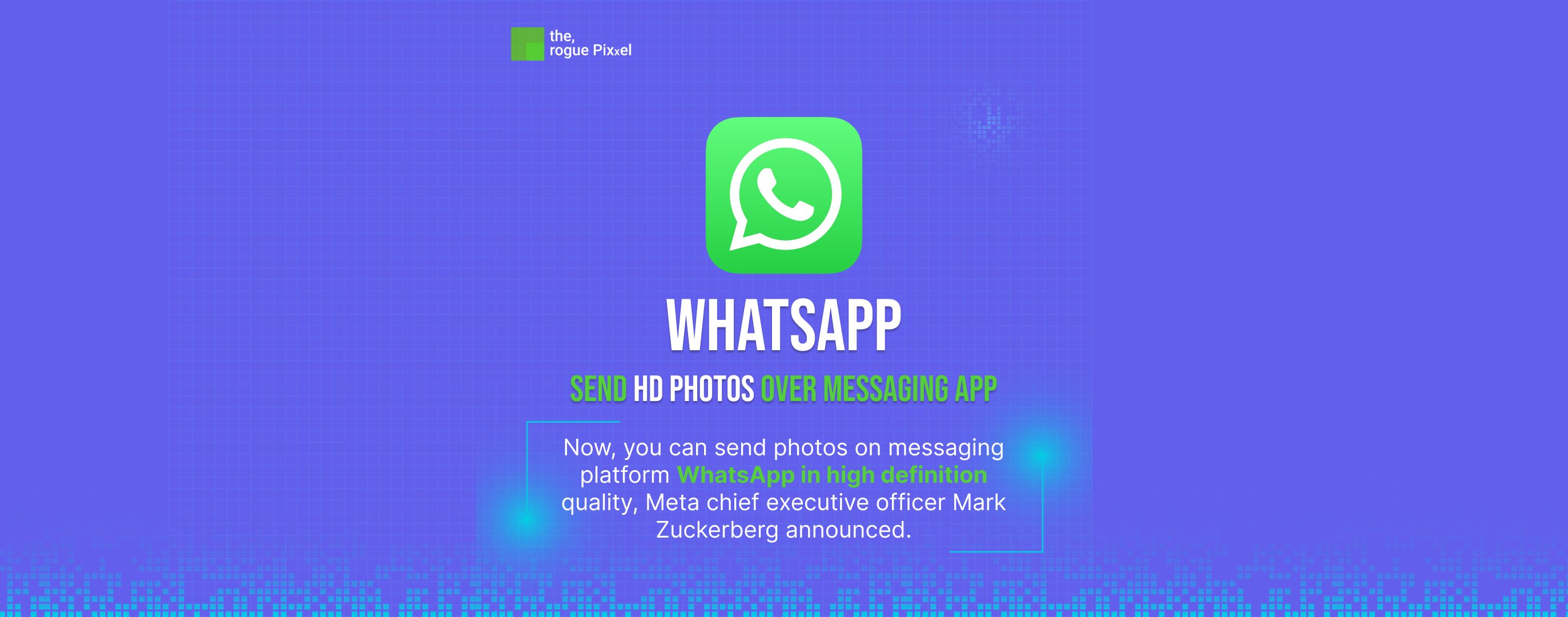
Meta's CEO Mark Zuckerberg announced that WhatsApp users can now send photos in high definition (HD) quality. Unveiling the feature on Facebook, he mentioned, "Sharing photos on WhatsApp just got an upgrade -- now you can send in HD." Though the default option remains the standard quality for photo sending, users on low bandwidth can choose between standard or HD for individual photos. This HD feature, along with HD Videos, will be globally available in the coming weeks.
Additionally, earlier in the month, Zuckerberg introduced the ability for users to share their screens during WhatsApp video calls, enhancing collaborative experiences like work document sharing, family photo browsing, vacation planning, or online shopping. This function also supports Landscape mode, broadening the visual experience during calls.
In another development, Meta launched video messages on WhatsApp last month. This feature lets users send short personal videos within chats. To send a video message, users switch to video mode, hold to record, and can lock for hands-free recording. These video messages play muted by default, with sound activated upon tapping. Importantly, the videos benefit from end-to-end encryption for secure communication.
Meta To Launch A Free Code-Generating Software
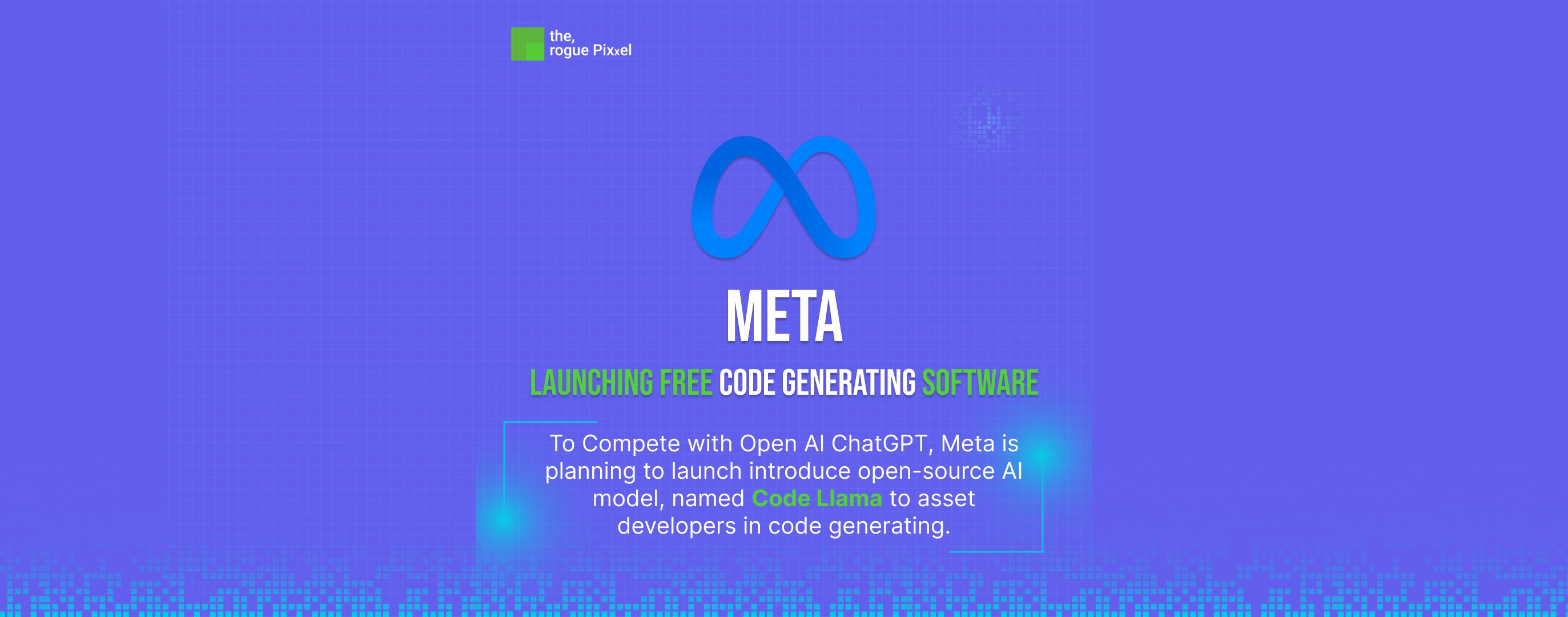
Meta is reportedly preparing to launch "Code Llama," a free code-generating AI software to rival established offerings from companies like OpenAI and Google. According to The Information, this open-source solution is expected to debut as early as the next week, positioning it as a direct competitor to OpenAI's Codex model.
"Code Llama" is built upon Meta's "Llama 2" software, a language model known for its conversational text comprehension and generation. While Llama 2 has already disrupted the AI industry by allowing businesses to develop AI applications without the need for paid solutions from giants like OpenAI, Google, and Microsoft, Code Llama aims to further revolutionize AI development. It is designed to offer real-time automated coding suggestions to developers, potentially steering clients away from paid coding assistants, including Microsoft's GitHub Copilot, which utilizes OpenAI's Codex.
In addition to its social media ventures, Meta has actively engaged in pioneering AI R&D efforts. In February 2023, they introduced "Llama," an AI model comparable to OpenAI's GPT-3, which was released open-source. Subsequent models, like "Alpaca" and "Vicuna," were developed based on Llama with additional enhancements. The company later released an upgraded "Llama 2" in July 2023, with a commercial license suitable for business applications.
Mark Zuckerberg, Meta's CEO, emphasized the company's commitment to AI innovation, citing projects like Llama 2, Threads, Reels, and others. However, despite focusing on efficiency, Meta's AI and virtual reality ventures remain costly. The company projects total expenses to be between $88 billion and $91 billion in 2023, surpassing earlier estimates.
Google is Testing AI That Can Provide Life & Financial Advice
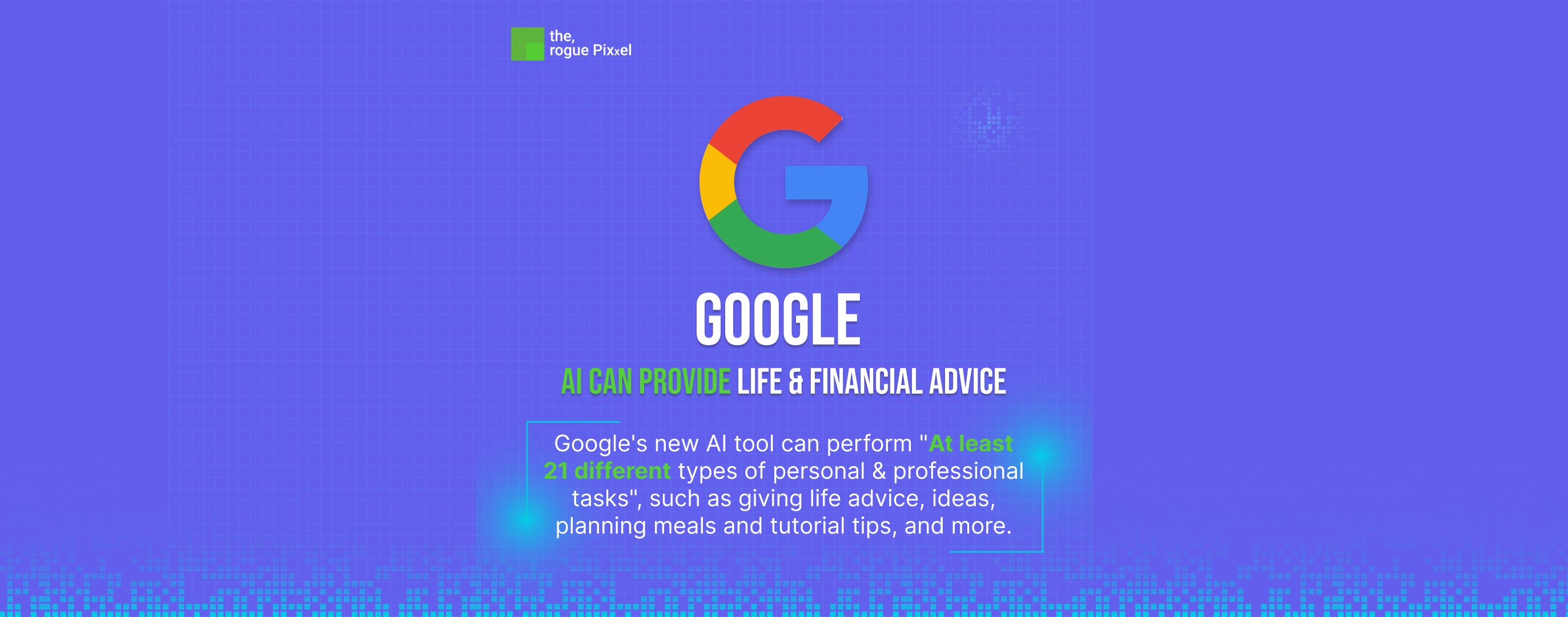
Google is experimenting with a new AI tool capable of performing "at least 21 different types of personal and professional tasks." This tool can provide advice on various life situations, generate ideas, plan meals, and offer tutorial tips, among other functions. Developed by Google's AI research lab, DeepMind, in collaboration with Scale AI, this chatbot appears to be similar to Google Bard and ChatGPT.
One highlighted function is the chatbot's ability to handle complex, personal queries. For example, it can offer advice on how to inform a close friend that one can't attend her wedding due to financial constraints. The goal of this AI tool is to enhance users' well-being, both financially and socially.
While there are pre-existing capabilities in Google Bard, the chatbot currently has its limitations, especially in areas like finance, health, and legal advice. This new technology seeks to overcome these boundaries. However, it's still under evaluation, and Google may opt not to deploy it.
A DeepMind representative emphasized that Google collaborates with various partners to assess its research and products. The exact future and application of this AI life coach remain uncertain, and it's yet to be seen if it will be integrated with Bard. Concurrently, Google is developing an AI tool to support journalists, aiming to aid news publications in article writing, positioning the tool as a personal assistant for the media industry.
Netflix is Testing Games on TVs and PCs
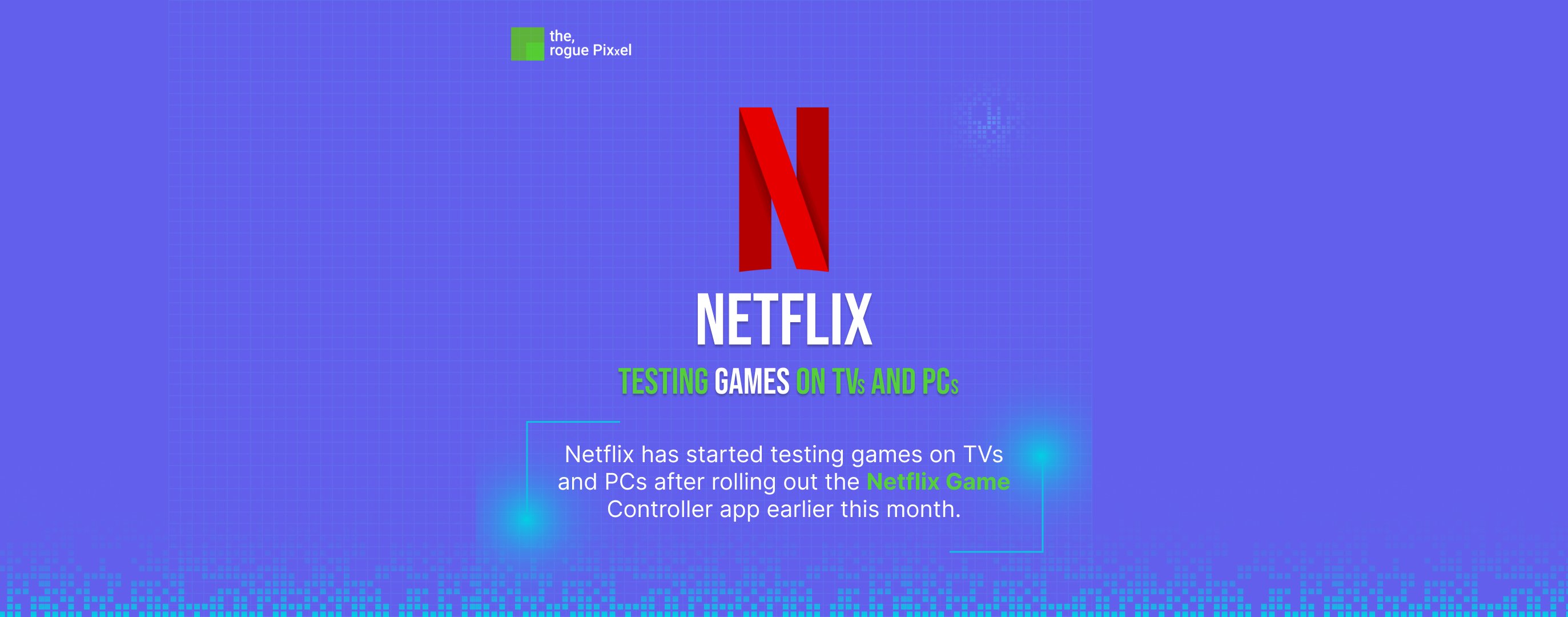
Netflix has begun testing games on select TVs and PCs following the introduction of the Netflix Game Controller app. Games on TV will be available on specific devices like Amazon Fire TV Streaming Media Players, Chromecast with Google TV, LG TVs, Nvidia Shield TV, Roku devices, Samsung Smart TVs, and Walmart ONN, with more devices to be included progressively. Previously, Netflix games were exclusive to Android smartphones and iPhones. To play these games on TV, users need the free Netflix Game Controller app from the Google Play Store or Apple App Store. Netflix ventured into cloud gaming in 2021 and has launched titles like Laya's Horizon and World of Goo Remastered. Despite its ambitions, Netflix remains cautious about its gaming expansion, considering the challenges faced by platforms like Google Stadia and the hardware limitations of TVs.
PayPal to Leverage AI Security System
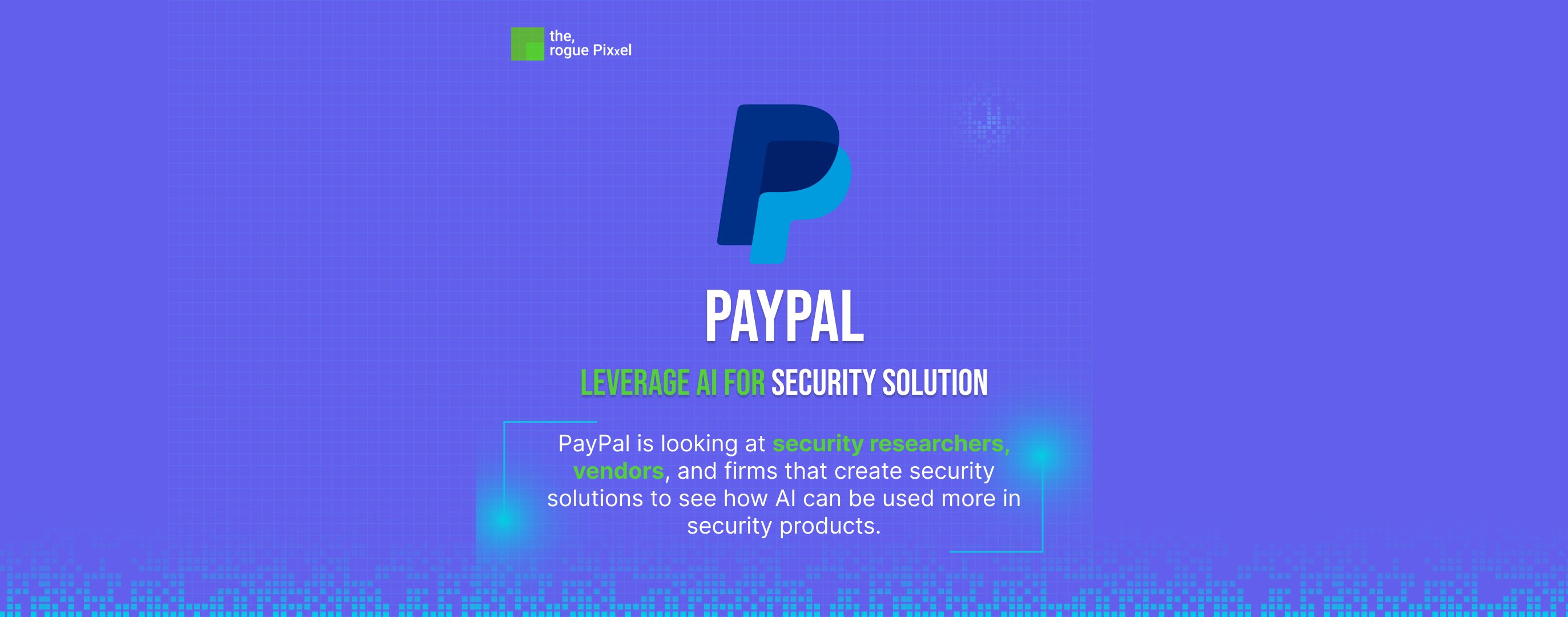
PayPal is exploring the potential of Artificial Intelligence (AI) to enhance its security measures amid a rapidly evolving threat landscape, as stated by Assaf Keren, the company's Chief Information Security Officer. The rise of Generative AI has provided both opportunities and challenges for businesses, with advancements in technology bolstering both security defenses and cybercriminal tactics. To counteract these threats, PayPal is collaborating with security researchers, vendors, and firms to integrate AI further into global security products. The company has a history of robust AI utilization and aims to leverage this experience. PayPal recognizes the importance of collective efforts in the cybersecurity realm and emphasizes understanding the security posture of its vendors. The shift towards remote work during the COVID-19 pandemic, along with economic and geopolitical challenges, has accelerated changes in the threat landscape.
Tags:
Popular Articles

Digital Marketing Trends
What are the Latest Digital Marketing Trends and How Can They Help You?

Rise of ChatGPT
Bringing Artificially Intelligent Document Processing Into the Future

Covid19 and Digitization
How COVID19 Pandemic pushed companies over Digitalization
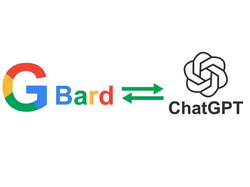
Bard vs ChatGPT
Bard Chat Bot vs ChatGPT: Which AI Bot is Better?

Branding in Digital Era
Brand Building in the Era of Digital Transformation

Latest Trends in Digital Marketing in 2023
What are the most prevalent trends in digital marketing, and how can they help you?
